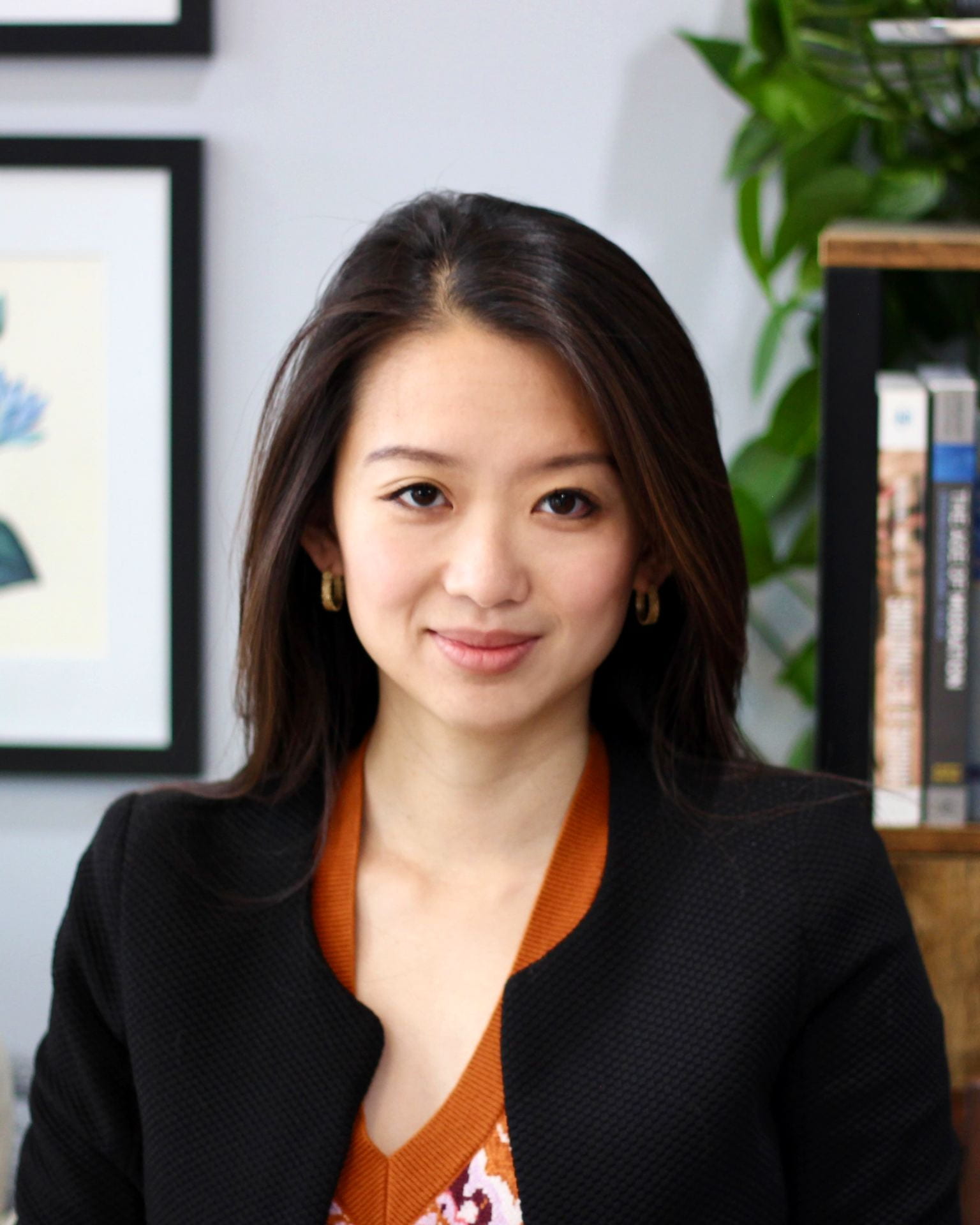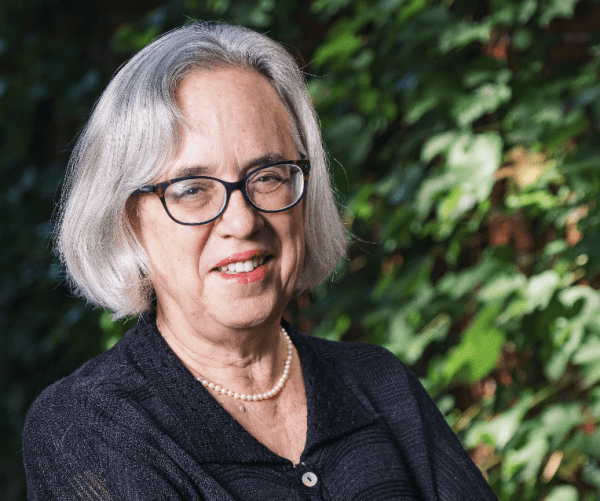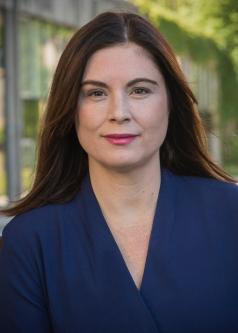Faculty Affiliates

Chiara Galli, Ph.D.
Assistant Professor, Comparative Human Development
I am Assistant Professor of Comparative Human Development at the University of Chicago. I received my Ph.D. in Sociology from the University of California, Los Angeles (UCLA) in 2020 and was a postdoctoral fellow at Cornell from 2020 to 2022.
My research is situated in the fields of: international migration; refugee studies; law & society; political sociology; gender; children, youth, & the life-course; and families. I study the legal and political struggles that lie at the heart of classifying migration flows, how immigration laws shape people’s lives, and how children differ from adults as migratory actors and legal subjects in their own right. My research has been generously funded by several agencies, including the National Science Foundation, and has been published in the journals Social Problems, Journal of Ethnic and Migration Studies and Ethnic and Racial Studies, as well as in book chapters and policy reports.
My forthcoming book, titled Precarious Protections: Unaccompanied Minors Seeking Asylum in the US, is an ethnography of the experiences of Central American unaccompanied minors and their immigration attorneys as they pursue applications for refugee status in the US asylum process. It will be published in February 2023 by University of California Press.
I am currently working on two new collaborative research projects. With Dr. Filiz Garip (Princeton), we are using Mexican Migration Project survey data to compare determinants of Mexican child and adult migration to the US, asking how these have evolved historically from the1960s until today. With Tatiana Padilla (Cornell), we are studying access to legal representation and determinants of case outcomes for unaccompanied minors in U.S. Immigration Court using administrative data compiled by TRAC.

Linda Zhao, PhD
Assistant Professor, Sociology
Linda Zhao’s research focuses on how social contexts (such as levels of diversity or inequality in a population) can shape intergroup dynamics in social networks, how social networks and social contexts are linked to our behaviors and decisions, and how such networks can generate inequality. Her projects investigate intergroup dynamics, inequality, and social influence in networks within the areas of immigrant integration, policing, and public health. Zhao’s current work leverages data from a range of contexts such as adolescent friendships in classrooms, officer networks in police departments, as well as quasi-experimental settings using computational models. Prior to joining the University of Chicago, Zhao was a Frank H.T. Rhodes Postdoctoral Fellow at the Cornell Population Center. Zhao earned a PhD from Harvard in Sociology in 2020, a MA in Statistics from Harvard in 2017, and a BA in Economics from Princeton in 2013.

Aresha Martinez-Cardoso, PhD
Assistant Professor, Public Health Sciences
Aresha Martinez-Cardoso is an interdisciplinary public health researcher and Assistant Professor in the Department of Public Health Sciences. Her research integrates theoretical perspectives from the social sciences with epidemiological methods in public health to examine how social inequality in the US shapes population health, with a particular focus on the health of racial/ethnic groups and immigrants. Martinez-Cardoso’s work interrogates how race and social inequities have been deeply embedded into our nation’s culture and institutions and traces the biosocial mechanisms by which these inequities get “under the skin” to affect health across the lifecourse. Currently, Dr Martinez-Cardoso’s research agenda is guided by three major lines of inquiry (1) conceptualizing structural racism and its impact on health (2) studying the biopsychosocial mechanisms by which lifecourse conditions shape health, and (3) empirically measuring the links between social inequities and health using diverse data sources. Martinez-Cardoso holds a PhD in Health Behavior and Health Education from the University of Michigan, and a MS in Community Health Sciences from UCLA.

Eman Abdelhadi, PhD
Assistant Professor, Department of Comparative Human Development
Our society is increasingly composed of multiple subcultures—ethnic, religious and political. How do these subcultural communities reproduce themselves across generations? Why are some more successful at this than others? Professor Abdelhadi’s current book project answers these questions using the case of second-generation immigrant Muslim Americans. I trace individuals’ relationships with Muslim communities across the life course, showing the ways in which attachment is gendered at individual, household and institutional levels.
The book speaks to my broader interest in how religion influences everyday life, including political and economic outcomes. I have investigated this question from multiple angles using mixed methods. One set of projects examines when, where and how religion matters for women’s participation in the public sphere through paid employment. Another set focuses on the relationship between religious orthodoxy and political conservatism in the United States. My research has been published in Social Forces, Socius, and other social science publications.

Susan Gzesh
Executive Director, Human Rights Program, University of Chicago
Susan Gzesh, is Executive Director of the Human Rights Program at the University of Chicago and is a Senior Lecturer in the Social Sciences Collegiate Division. She teaches courses on human-rights topics, including the prohibition on torture and the rights of aliens and citizens. The Human Rights Program offers courses based in the humanities and social sciences, grants internships, and promotes scholarship, conferences, and events which link human-rights “real world” activism and the academy. Ms. Gzesh was a Lecturer in the law school from 1992 until 2003, and is associate faculty with the Center for Latin American Studies and the Friedrich Katz Center for Mexican Studies.
From 1996 to 2001, she was the Director of the Mexico-U.S. Advocates Network, coordinating the Regional Network of Civil Organizations for Migration (the NGO counterpart of the intergovernmental Regional Conference on Migration), as well as the Chicago-Michoacan Project and the Chicago-Mexico Leadership Initiative, all projects which promoted cross-border, transnational dialogues on migration policy and human rights. From 1997-99, Ms. Gzesh was legal advisor to the Minister for Migration Affairs of the Embassy of Mexico. From 1977-96, she practiced civil rights and immigration law representing immigrant workers and refugees, as well as Latino candidates in local elections.
She received her JD from the University of Michigan and her AB from the University of Chicago. She was a Fulbright Lecturer at the Universidad de Guadalajara in 1990, served on the 1992 Clinton-Gore Presidential Transition Team, and is a member of the Illinois governor’s New Americans Initiative advisory board, charged with developing immigrant-friendly state policies.

Nicole Hallet
Clinical Professor of Law, Director of the Immigrants’ Rights Clinic
Nicole Hallett is a Clinical Professor of Law and directs the Immigrants’ Rights Clinic, which provides legal representation to immigrant communities in Chicago including individual representation of immigrants in removal proceedings, immigration-related complex federal litigation, and policy and community education projects on behalf of community-based organizations. Her scholarship focuses on immigration and labor/employment law, and in particular, how laws in these areas either promote or impede collective action and power-building in subordinated communities. In her practice, she specializes in creative lawyering through complex litigation and multi-pronged advocacy. Her work has appeared in the New York Times, NPR, The Nation, the Today Show, the Intercept, and the Associated Press, among other places.
For more background on Hallett’s work and advocacy, please see Charlie Savage, Testing Novel Power, Trump Administration Detains Palestinian After Sentence Ends, N.Y. Times, Mar. 26, 2019; Liz, Robbins, Owner Was Target, but Restaurant Workers Are Swept Up in Immigration Raids, N.Y. Times, Nov. 11, 2016; and Sarah Maslin Nir, The Price of Nice Nails, N.Y. Times, May 7, 2015.
Professor Hallett was previously an Assistant Clinical Professor at the University at Buffalo School of Law where she founded and directed the Community Justice Clinic and the US-Mexico Border Clinic, and a Robert M. Cover Clinical Teaching Fellow at Yale Law School where she co-taught the Worker and Immigrant Rights Advocacy Clinic. Before beginning her teaching career, Hallett was a Skadden Fellow and staff attorney at the Community Development Project of Urban Justice Center in New York City where she represented victims of human trafficking and labor exploitation. After graduating from Yale Law School, she clerked for the Honorable Mark R. Kravitz on the United States District Court of the District of Connecticut and the Honorable Rosemary S. Pooler of the United States Court of Appeals for the Second Circuit. She also has a master’s degree from the University of Oxford in Refugee Studies.

Pedro Gerson
Instructional Professor and Director of Human Rights Practice
Pedro Gerson’s research focuses on the intersection of criminal and immigration law. Prior to joining the Pozen Center, Professor Gerson was an Associate Professor of Law at California Western School of Law and previously he directed the Louisiana State University Immigration Clinic. Before joining the LSU Law Center faculty, Professor Gerson served as an immigration staff attorney at The Bronx Defenders in New York City, a public defender nonprofit.
Professor Gerson previously held several positions in Mexico City, including as a researcher and project manager at the Instituto Mexicano para la Competitividad (IMCO), a think tank. He also worked in government, in the National Digital Strategy Unit of the Office of the President of Mexico. While in Mexico, Gerson was an adjunct professor in the economics and law departments at Instituto Tecnológico Autónoma de México and Universidad Iberoamericana.
Professor Gerson earned a JD/MPP from the University of Chicago.

Ramón Garibaldo Valdéz
Provost's Postdoctoral Fellow
Ramón Garibaldo Valdéz studies social movements, U.S. Latinx politics, and immigration. His current book project is entitled, “La lucha de cada día: Immigrant Justice Organizing and the Political Remaking of Illegality in the U.S.” Based on three years of ethnographic research, it centers immigrant justice organizations, led by and representing undocumented immigrants and asylum-seekers, as key actors in American democracy. It chronicles and analyzes immigrant-led community organizing, exploring the strategies employed by these communities to advance welcoming social policies, create long-lasting political infrastructures, and even organize inside detention centers.
Ramón earned his Ph.D. and M.Phil degrees from Yale University’s Political Science Department, and a B.A. in political science from Johnson C. Smith University, a Historically Black College in North Carolina. Ramón is a passionate advocate of activist research, ethnographic methods, and grounded theorizing in the study of politics.

Jessica H. Darrow, PhD
Associate Instructional Professor
Jessica Darrow is an Associate Instructional Professor and directs the Global Social Development Practice Programs at the University of Chicago Crown Family School of Social Work, Policy, and Practice. Dr. Darrow’s research is focused on the institutional structures for refugee resettlement in the United States and how these structures are impacted by the politics of social policy and the social construction of the refugee identity. Her research to date has grappled with the ways in which opportunities for a rights-based policy framework for refugees are constrained by the organizational level pressures that refugee resettlement agencies face in the era of performance-based contracts for service delivery. Her current studies include an examination of how the refugee resettlement sector adapted to the Trump Administration’s anti-immigrant and anti-refugee policies, what resistance to these policies looked like, and how the resettlement system is reconstituted in the aftermath.
Darrow teaches across the curriculum at the Crown Family School of Social Work, Policy, and Practice, in the core, the social administration concentration, and in elective courses within the Global Social Development Practice programs. She recently received a course development grant from the Pozen Family Center for Human Rights to research and develop a new course entitled, Climate Change and Human Mobility.
Dr. Darrow received her A.B. from the University of Chicago, and her A.M. and Ph.D. from the University of Chicago Crown Family School of Social Work, Policy, and Practice. Her practice experience includes five years as Executive Director of a small education-based non-profit organization operating in East and Southern Africa, and almost two decades of service with the Wieboldt Foundation engaged in supporting local grassroots multi-issue community organizing groups in the Chicago area.
